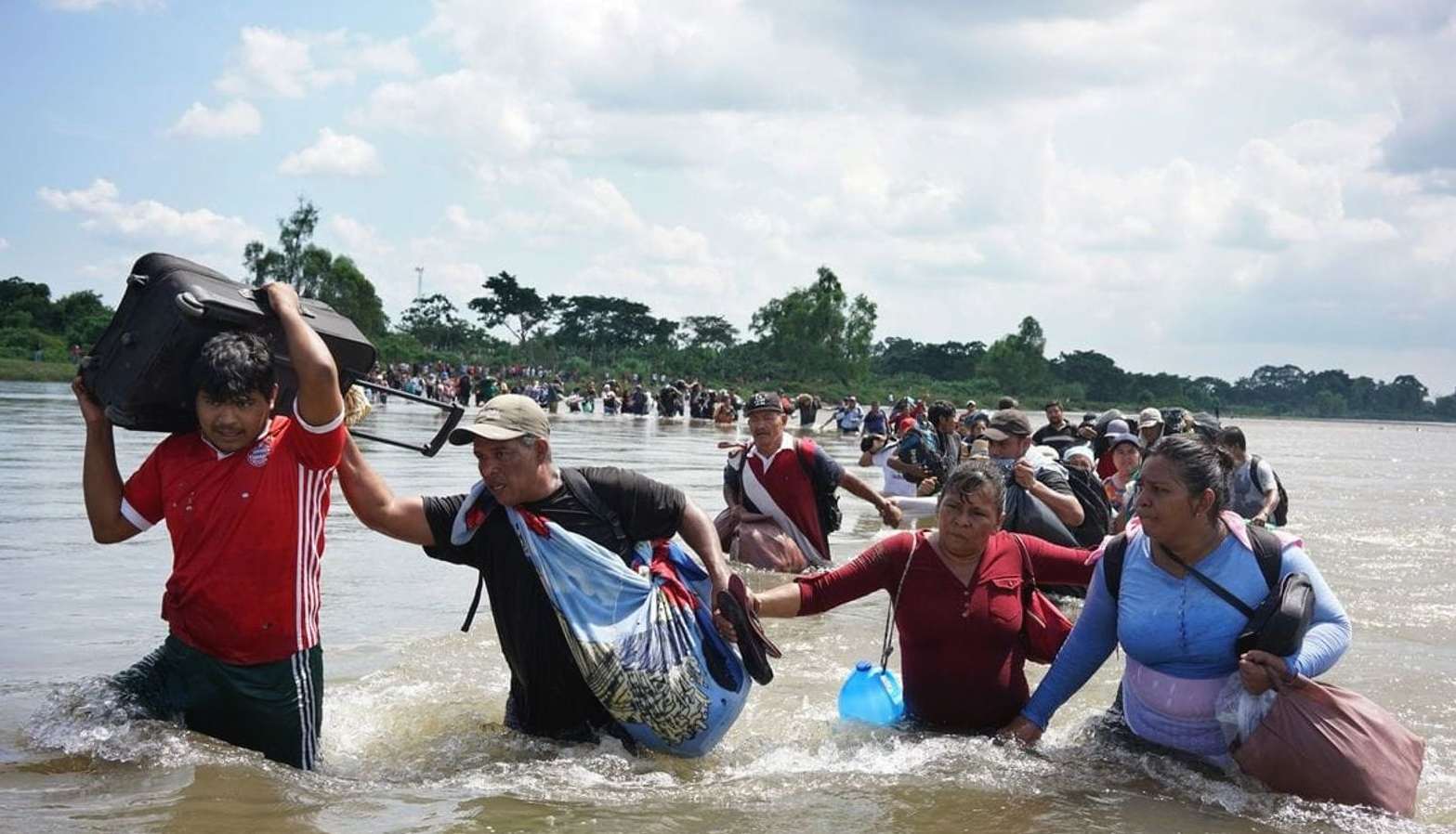Extreme weather events have directly or indirectly affected people’s lives across the world. Floods, prolonged droughts, wildfires, and rising sea levels are forcing thousands of people to abandon their homes—often with no possibility of return, meaning permanently. These events exacerbate social inequalities, conflicts, and vulnerabilities, creating a scenario of polycrisis.
In countries with limited response capacity and poor infrastructure, environmental impacts become even more severe. Vulnerable communities face additional risks as climate events intensify. In this context, human mobility ceases to be a choice and becomes an urgent necessity for survival. Yet there are also situations of immobility: people who, even when facing imminent danger, cannot move due to a lack of resources, support, or safe alternatives. The climate crisis not only displaces—it also traps.
Experts warn that most refugees and internally displaced people live in regions highly exposed to climate change. Without effective public policies and international cooperation, these populations face immense obstacles to rebuilding their lives and remain vulnerable to new cycles of displacement.
Human mobility in the 21st century is conditioned by environmental factors that demand urgent, comprehensive, and human rights–based responses. Recognizing this reality is the first step toward ensuring the protection and dignity of affected populations. Over the past decades, environmental displacement has stood out among global forced movements, with 264.8 million forced displacements across 210 countries and territories between 2015 and 2024 (IDMC, 2025).
Although environmental and climatic factors driving displacement continue to increase—as seen in the recent floods in Rio Grande do Sul, Brazil, and severe droughts in the Amazon—most people already forcibly displaced by persecution, conflict, or violence live in highly vulnerable countries struggling structurally to adapt to climate change. Climate change affects migration in two ways: by generating new environmentally displaced persons and by severely impacting those who are already refugees for other reasons.
Moreover, affected populations already living in areas with limited access to basic services or infrastructure are highly exposed and vulnerable to climate risks. Floods, droughts, storms, and heatwaves place them under constant threat of displacement—or, conversely, of forced immobility when they cannot move to safety. The climate crisis disrupts livelihoods and makes it difficult for displaced people to regain autonomy, hindering access to fundamental rights and the guarantees necessary for survival.
Based on this data—and with the goal of ensuring protection and visibility for all those affected by environmental disasters and the adverse effects of climate change—a group of women researchers and practitioners working in affected territories sought to contribute to COP-30 by drafting and presenting the Academy Declaration on the Comprehensive Protection of Environmentally Displaced Persons, Refugees, Other Migrants, and Persons in Need of International Protection Affected by Environmental and Climatic Issues: the Academy Declaration in the context of COP-30.
The Declaration is the result of a collective and collaborative process. Inspired by the experience of the Academy Declaration within the framework of Cartagena +40, it was developed by a Working Group (WG) composed of professors, researchers, and research staff from UniSantos, RESAMA, and the Sérgio Vieira de Mello Chair. The text was submitted for public consultation and received contributions from experts in over 15 countries, including Brazil, Colombia, India, Australia, and Senegal.
The goal was ambitious: to collaboratively craft a declaration that would place the protection of people displaced by climatic and environmental causes at the center of the international discussions at COP-30, to be held in Belém do Pará in November 2025.
The Declaration is grounded in the principle that academia should not limit itself to observing crises but must actively contribute to transforming them. By bridging theory and practice, it reaffirms the role of scientific knowledge as a tool for justice and solidarity. This vision gains strength at a time when climate-related human mobility challenges the boundaries of international law. While national legislation remains insufficient, global responses are still progressing slowly. In this context, the document stands as a concrete proposal to address protection gaps, inspire new public policies, and complement existing ones.
This diversity of voices reflects the spirit of the initiative: think globally, act regionally, and listen locally. Each contribution was critically incorporated, resulting in a document that embodies the lived experiences of people and communities affected by climate change.
What Does the Declaration Propose?
The Academy Declaration, within the framework of COP-30, contains a preamble and 30 core recommendations. But more than mere recommendations, the text is a call to joint action among governments, international organizations, and civil society—to guide and strengthen the fight for climate justice and the visibility of all those affected and forced to relocate due to environmental disasters or the adverse effects of climate change.
The Academy Declaration presents itself as a manifesto of hope and responsibility, reminding us that the impacts of climate change are both social and environmental. With this document, the Brazilian and Latin American academic communities send a clear message: it is time to act in a coordinated, united, and committed way to ensure the dignity of all people, territories, and communities.













